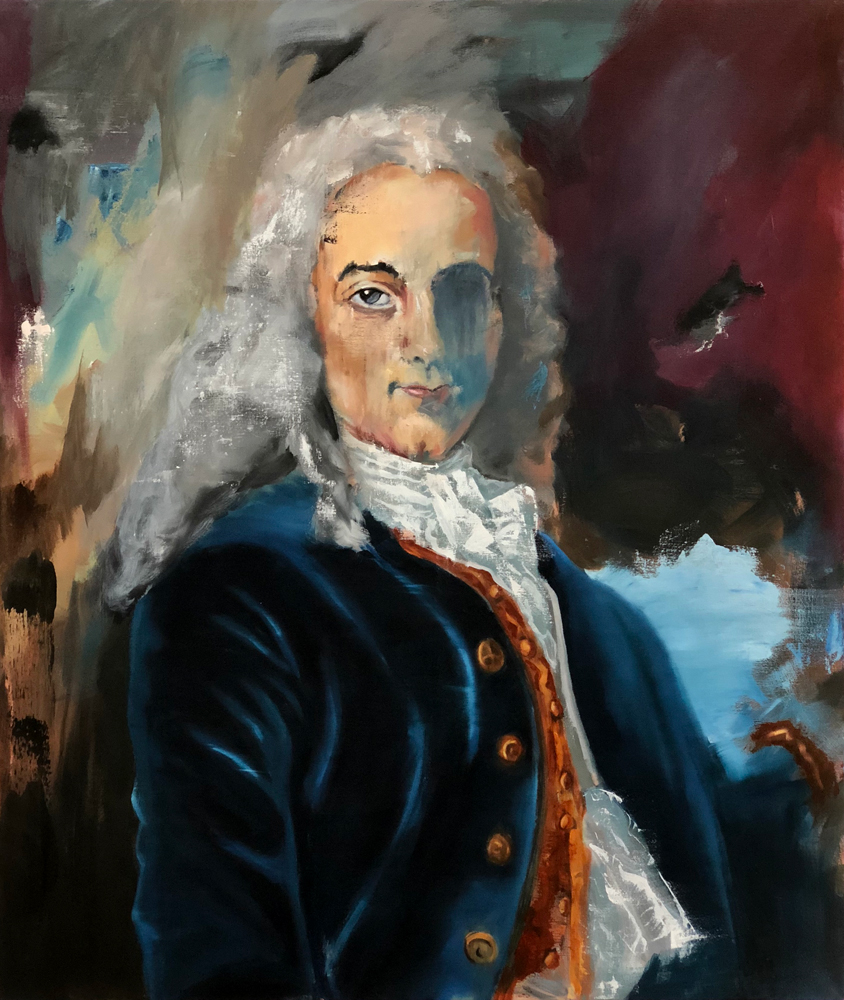"Those who can make you believe absurdities, can make you commit atrocities."
Voltaire was educated by the Jesuits in Paris and took to satirical writing at an early age. He had to go into exile in Holland at the age of 19 and was imprisoned in the Bastille for nearly a year in his mid-twenties. Despite these setbacks he established himself as the best playwright in France and used this as his vehicle to bombard the world non-stop with advanced views on society, religion and politics with humour and intelligence.
Voltaire, 2018 Oil on Canvas 109x91cm (Available for Sale)
After a second term of imprisonment in the Bastille he was forced into exile in England where he enjoyed a level of freedom and respect for the individual lacking in France. He learned English and immersed himself in the serious study of the new science, with the assistance of Émilie Du Châtelet, as represented by Isaac Newton, and the new liberal philosophy as represented by John Locke. He didn’t contribute to the body of ideas in these fields but used them as the intellectual content behind his plays, novels, biographies, historical works, pamphlets and critical reviews such that they became known throughout Western Europe.
Voltaire, 2017 Oil on Paper 28x28cm (Available for Sale)
Most significantly he propounded Locke’s idea that the confidence we have in religious beliefs needs to relate to evidence rather than the authority of Church and State. This insistence on viewing everything in the light of reason became known as the “Enlightenment”and Liberalism became a revolutionary creed. In intellectual matters liberals advocated the use of reason and the right of individual dissent as against conformism and obedience to tradition and authority. Voltaire believed these battles could be won without violence but many of his followers came to the view that revolutionary violence was necessary to sweep away the ancien regime. Thus Voltaire is seen as the godfather of revolutionary freethinking in 18th century France, the kind of thinking that did so much to bring about the French Revolution of 1789.

